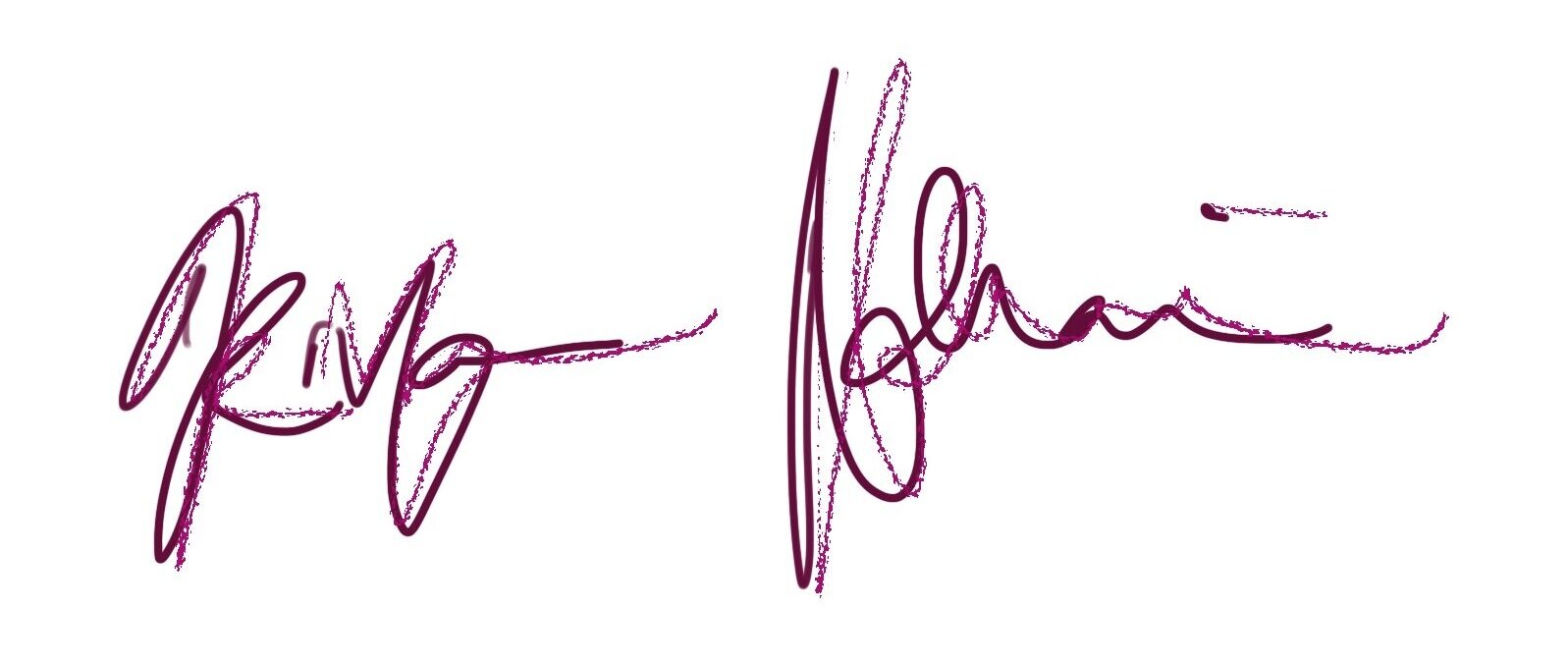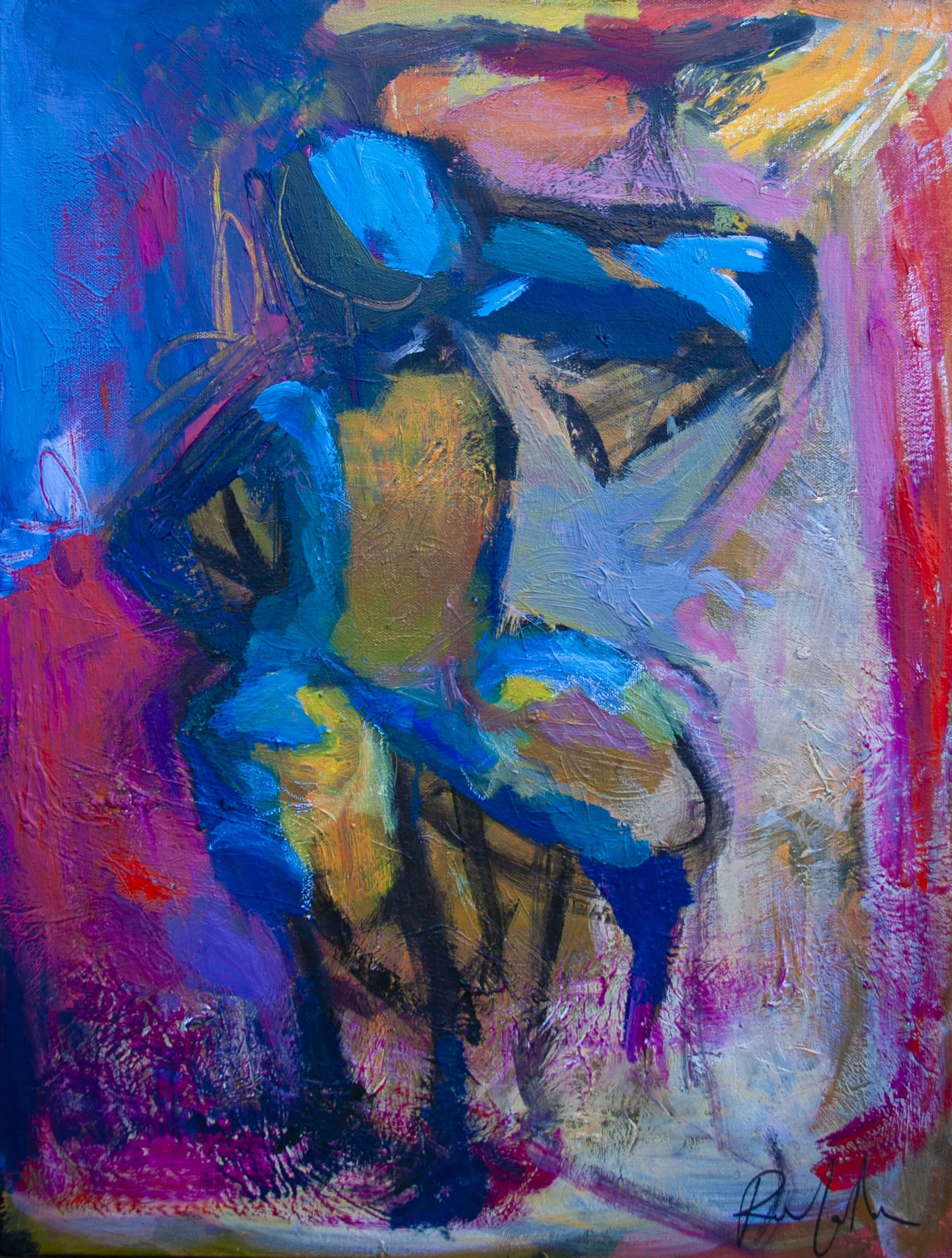Death March Energy
Acrylic on canvas
18 X 24’’, 2025
February 19, 2025
Among many of my peers, 30s and 40s, theres been a conversation we’ve been having, about the way in which the Holocaust has been framed and used and served as an unhelpful obsession and trigger point for our Jewish generation. We’ve been seeing it in the ways in which the mainstream Jewish community has responded to the rise in antisemitism, to the response to Israel.
Many of these peers identify as progressive, all of them critique and feel uncomfortable with the ways in which Israel is set up and function, and all of these friends fall in the cracks of the mainstream Jewish world, but they are there, trying to figure out how to rebuild, trying to figure out how to build alliances, trying to see who will listen to them. They are fully aware of how unwelcome they are in most spaces and so they try to find likeminded souls and keep the conversation going. Softly, slowly.
These are some of the most interesting people to me.
I wish all of the Jewish community could experience the antiZionist Kabbalat Shabbats they host in my area. Antizionism is a confusing word, one that makes many Jews’ hairs stand on end and vociferously shout, but really when you talk to many of these antiZionist Jews you see that it is just that they want to have discussions about Israel/Palestine, that they have different ideas of how the land should be divided. But the word “antiZionist” itself is like a bitter shot of terror for most Jews. At these Kabbalat Shabbats, as they sing Lcha Dodi with fervor and love. I’ve felt mourning and grief and healing and hope floating in the air there in a way I haven’t felt in any Jewish space post Oct 7.
The conversation of the Holocaust discussion I’ve had with peers revolves around an examination of how we can use a particular traumatic experience to either connect with others or to set ourselves apart, as the sole victims, the eternal victims. What is most helpful, what is most conducive to systemic, worldly change. And how that impacts current events.
We are different and we are not different. It really touched me when UCLA professor Dov Waxman spoke to a class of mine and explained that he prefers to not use the term antisemitism, as opposed to racism (even though Jews are not a race in contemporary understanding), because the problem with a separate term is that it makes us feel like what it happening with antisemitism is disconnected from all of the other bigotry, that it is absolutely unique. And while all hate takes on different flavors, different stereotypes and tropes, there is a common thread, a common link, something happening in the atmosphere that unites all of the oppressions happening.
When Jews are up in arms about one kind of hate (antisemitism) and do not see how this kind of hate is related to all of the other rising hate around them… this is a great problem.
Near me, JewBelong put a large pink billboard: Jewish students deserve to feel safe on campus.
Of course.
But this blaring billboard and its other billaboards does not and does not ever acknowledge the greater phenomenon going around on campus, of other kinds of students feeling unsafe, as if the hate of one is not related to the hate of others. The true calling is not for us to shout as loud as we can how antisemitism is wrong, but for us to create allies and alliances and stand strong TOGETHER. To see all of the hate circulating and to see how it is impacting and infecting us all and for us to stand for each other. That is the only way through.
We are not the only ones suffering. We are not the only ones who have experienced and are experiencing unbelievable trauma, again and again and again.
We can not create those false mental silos. For then we will never find the real salvation.
So I’ve been rethinking how we tell our stories. I’ve been rethinking what it means to be a third generation Holocaust survivor.
I created a piece from it. With the hopes of spreading feelings of strength and hope and belief.
Here's what I wrote about it:
How do we use our histories and connect to our ancestors?
"You know," my therapist once said to me, "there’s not just post traumatic stress. There’s also post traumatic growth."
It is the crazy experiences of our lives, the challenging ones, that can either hinder us or plant a seed in us to grow even farther.
I’ve been reimagining what it means to be a third generation Holocaust survivor. Reimaging the stories we can tell ourselves about the power in these bones.
The other day, a friend commented on my oldest daughter: She’s got big sister energy.
And then the idea came to me:
A body, defiant, strong, proud. Exuberant. Determined.
With Death March Energy.
The power, passed through the generations, from one resilient family member to the next.
I recall the words of the beautiful singing group Sweet Honey In the Rock, that first made me think about this concept:
"I don’t know how my mother walked her trouble down
I don’t know how my father stood his ground
I don’t know how my people survive slavery
I do remember, that’s why I believe
Head up, my lady, head up, head up, head up…."
I don’t know how my grandmother survived the death marches of Aushwitz, in the bitter cold, with barely any clothing, with no food to eat, with her two sisters by her side.
But I know that the power of her strength lives onward in me, in my bones.
We are never giving up.
Head up, my lady, head up, head up, head up……..

